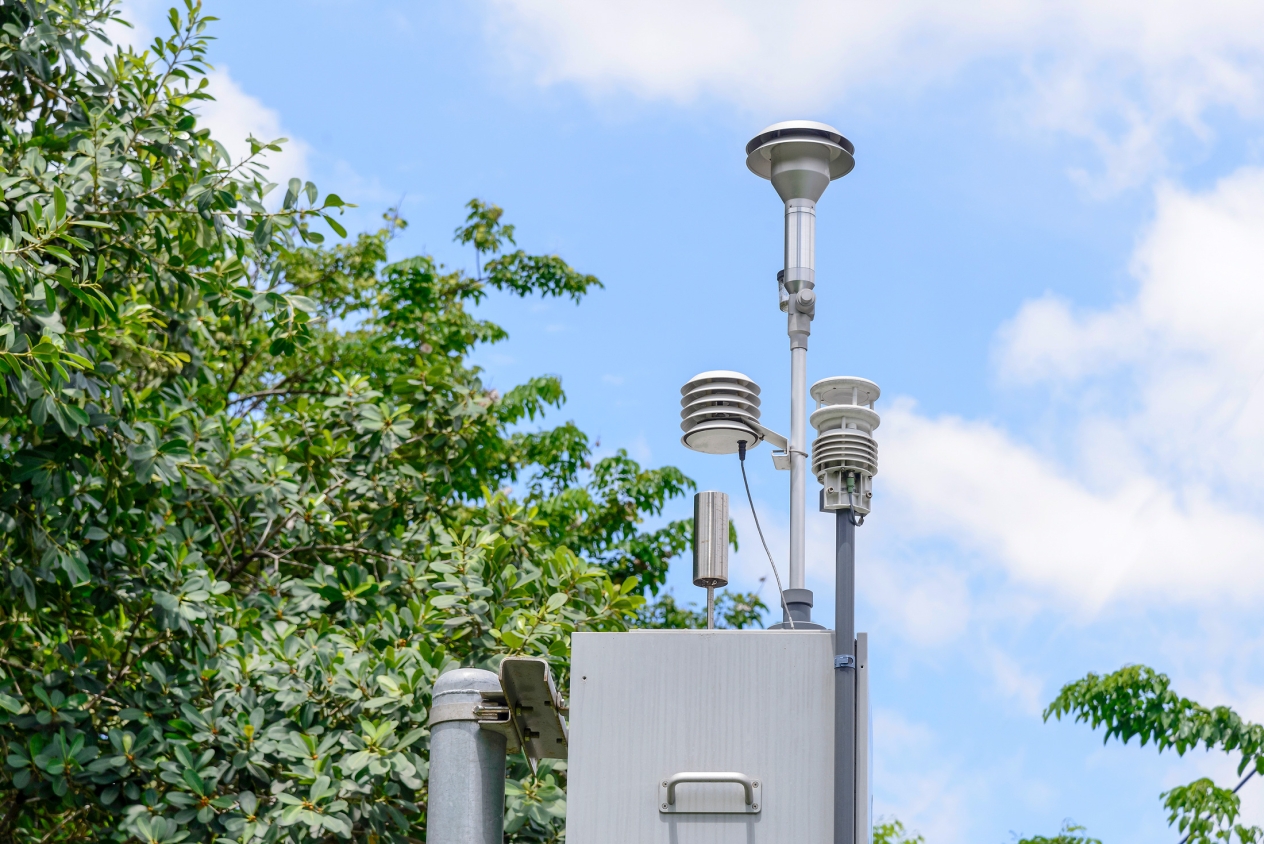
Communities facing the impacts of air pollution will soon have new resources to understand and improve the air quality in their neighborhoods after the MPCA awarded $4.83 million to establish community-based air quality monitoring networks in the Twin Cities metro area.
"We're thrilled to kick off this new grant program, which represents a big step forward in community-driven environmental protection," said Tyler Ellis, the program coordinator for the MPCA. "By equipping local organizations with air monitoring resources and partnerships, communities within the metro will have opportunities to gather new air quality data and use it how they see fit."
The grants will fund the deployment of air sensors in various neighborhoods, allowing for real-time monitoring of pollutants such as arsenic, lead, cadmium, carbon monoxide, ozone, and particulate matter. Sensors differ from regulatory air monitors used for enforcement actions, but provide an opportunity for hyper-local data and access to air quality conditions relevant to people's daily lives. Importantly, the community networks collecting the data will share it with the MPCA, creating a collaborative effort to identify pollution hotspots and inform policy decisions.
"Empowering local communities to track air quality as third parties not only creates transparency but also helps the agency track air quality conditions," Ellis said. "This collaborative approach means that the data we collect is reflective of on-the-ground realities in these neighborhoods."
A key focus of this program is environmental justice. The MPCA is prioritizing projects in areas where residents face disproportionate impacts from air pollution.
"Addressing environmental justice is at the heart of this funding and was a big factor in determining the awardees," Ellis said. "Ultimately, this funding is part of the state’s effort to really invest in the well-being of marginalized communities. Here at the MPCA, that means improving the environment in areas of concern for environmental justice. And these grants take it a step further by offering resources to organizations that are more closely in-tune with neighborhood-specific needs.”
Funding for the grants came from the 2023 legislative session as part of Governor Walz’s One Minnesota budget.
These grants build upon previous air monitoring efforts in the metro area, including a pilot air sensor network that the MPCA ran from 2019 to 2021, which distributed 50 sensors across 44 zip codes. Lessons learned from that project highlighted the need for more localized monitoring to effectively gauge neighborhood-level air quality variations.
For more information about this grant and other related resources, visit the MPCA’s air quality sensors webpage.
Grant recipients
Clean Air For All, from the University of Minnesota Urban Research and Outreach-Engagement Center
- Grant award: $1,968,257
Clean Air For All will use the funds to monitor local air quality in the East-West Broadway corridor of North Minneapolis, using high-quality stationary sensors, both indoors and outdoors, and mobile monitoring with advanced, research-grade equipment. It will partner with the Liberty Community Church, the 21st Century Academy, and the Northside Healing Center to conduct public health outreach and education efforts. The project will also have a diverse community advisory board to advise on outreach decisions.
The goal of the project is to empower socioeconomically disadvantaged communities to protect their health from the harmful effects of poor air quality through self-monitoring and accessible response strategies.
Neighbors for Clean Air, from The OSLUV Project
- Grant award: $1,473,250
Neighbors for Clean Air plans to monitor metals in the Hamline-Midway and Frogtown neighborhoods of Saint Paul in partnership with Minnesota State University Mankato, the Hamline Midway Coalition, and the Frogtown Neighborhood Association. Rather than focus on low-cost sensors, this project will primarily conduct metals analysis from 30 sites densely distributed around two neighborhoods. The project aims to understand the concentration of metal in local air pollution, identify where it is most concentrated, and then determine its potential health impacts. The project will also educate and engage residents on air quality, environmental justice, and community-driven change.
Airnet - Air Monitoring Network and Education Center, from The Great Plains Institute
- Grant award: $1,390,493
To address concerns about pollution from industrial facilities, freeways, and high-traffic roads, The Great Plains Institute proposed a community resource center called AIRNET that offers technical and grant management support to community-based organizations, enabling them to design, implement, and take action on local air monitoring projects. Six groups have pledged support for this project, including East Phillips Neighborhood Institute, North End Neighborhood Organization, Payne-Phalen Community Council, Greater East Side Community Council, West 7th / Fort Road Federation, and Union Park District Council.
